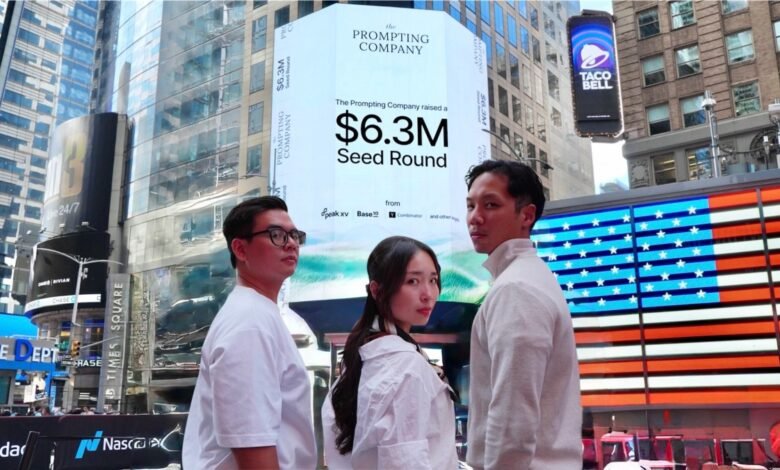The Prompting Company Raises $6.5M to Boost Product Mentions in AI Apps

▼ Summary
– People are increasingly using AI instead of Google for product discovery, especially for finding gifts and deals during the holiday season.
– Retailers could see a 520% increase in traffic from AI prompts by 2025, pushing brands to optimize for AI-generated recommendations quickly.
– The Prompting Company helps brands get mentioned in AI apps through generative engine optimization (GEO), focusing on AI-friendly content and pages.
– Brands need AI-facing websites without navigation bars or marketing fluff, as AI agents are the fastest-growing user segment and require different interfaces.
– The shift to AI-driven discovery may change purchasing behavior, with agents potentially handling transactions on users’ behalf as adoption accelerates.
A significant shift is underway in how consumers find products, with many now turning to AI assistants like ChatGPT instead of traditional search engines for gift ideas, deals, and shopping recommendations. This emerging behavior signals a massive opportunity for brands to capture a new wave of digital traffic. Industry analysis suggests that by 2025, retailers could experience a traffic surge of over 500% originating from chatbots and AI prompts. For any business, being prominently featured in these AI-generated suggestions is rapidly becoming essential for staying competitive.
This is the core premise behind The Prompting Company, a new startup that has just secured $6.5 million in seed funding to help products get mentioned within AI applications. The company’s approach is centered on Generative Engine Optimization (GEO), a strategy tailored for a future where AI agents autonomously browse the web on a user’s behalf. Founded just four months ago by Kevin Chandra, Michelle Marcelline, and Albert Punama, the Y Combinator-backed venture already serves clients such as Rippling, Rho, and Vapi.
Co-founder and CEO Kevin Chandra observes that the most substantial website growth in the past year has come from AI bots, not human visitors. He notes that developers are increasingly using AI tools for product recommendations within their workflows, predicting that people will become less involved in many stages of the purchasing process over time. As AI becomes the primary touchpoint for discovering new products, The Prompting Company asserts that brands must learn to market effectively to these digital agents, not just to people.
Chandra elaborates that this requires an “AI-facing website,” a streamlined version of a company’s site designed specifically for agents, free of navigation bars, pop-ups, and marketing-heavy content. He points out that while most businesses design their online presence for human eyes, the fastest-growing user segment on the internet is now AI agents, which require a fundamentally different interface.
The platform operates by first identifying the specific questions AI agents are asking, probing models to uncover queries that indicate purchase intent. It then generates structured content that directly answers those questions and automatically directs AI agents to specially optimized pages. This allows large language models to cite a brand’s information even if it doesn’t rank highly in conventional search engine results.
While traditional SEO remains important, Chandra argues that GEO is quickly becoming the priority. In this new paradigm, product recommendations surface organically based on their relevance to an ongoing conversation, rather than relying on paid keywords or search ranking positions. This evolution could fundamentally alter consumer purchasing habits, especially as new protocols from companies like Google and OpenAI facilitate AI agents that can browse and complete transactions autonomously.
Chandra uses a large e-commerce store as an example, where users perform actions like buying items, processing returns, or searching for promotions. The Prompting Company helps businesses expose these functions to AI agents. Although these agents aren’t yet directly clicking options or accessing APIs, the founders anticipate this will change within months, paving the way for advertising and conversion-driven models. For now, their focus is on ensuring companies are discovered and recommended by AI.
Currently, the startup’s client base is concentrated in fintech, developer tools, and enterprise SaaS, including a Fortune 10 company. The platform already hosts approximately half a million pages and drives tens of millions of monthly visits to client websites. The company uses a subscription-based pricing model, charging customers according to the number of prompts tracked and pages hosted.
The founding team, Indonesian immigrants who met during their freshman year of college, are repeat entrepreneurs. Their previous venture, Typedream, was a Y Combinator-backed platform that enabled users to build and launch websites quickly using AI; it was later acquired by beehiiv. They also built Cotter, a passwordless authentication SDK acquired by Stytch.
With this new venture, they aim to reshape product discovery and purchasing in the AI era. The seed funding, led by Peak XV Partners, Base10, Y Combinator, Firedrop, and angels including Logan Kilpatrick, will support platform scaling and partnership development as AI-powered discovery emerges as a critical distribution channel. The company is also collaborating with NVIDIA on next-generation AI search technology.
Arnav Sahu, a partner at Peak XV Partners, emphasized the critical nature of this shift, stating that if a product isn’t discovered or cited within platforms like ChatGPT, its future is limited. He expressed excitement about backing The Prompting Company as they build the essential infrastructure for modern product discovery, praising the founding team as accomplished and visionary builders.
(Source: TechCrunch)